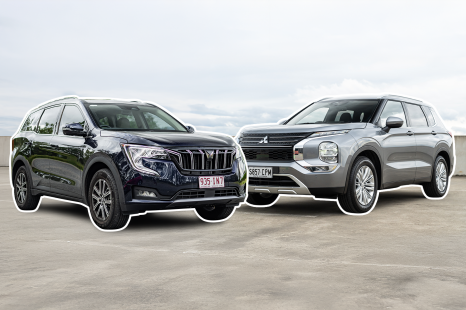

Andrew Maclean
4 Days Ago
A Toyota Australia exec has made another impassioned speech on the brand's electrification strategy, shutting down claims the company is 'lagging'.

Marketplace Editor
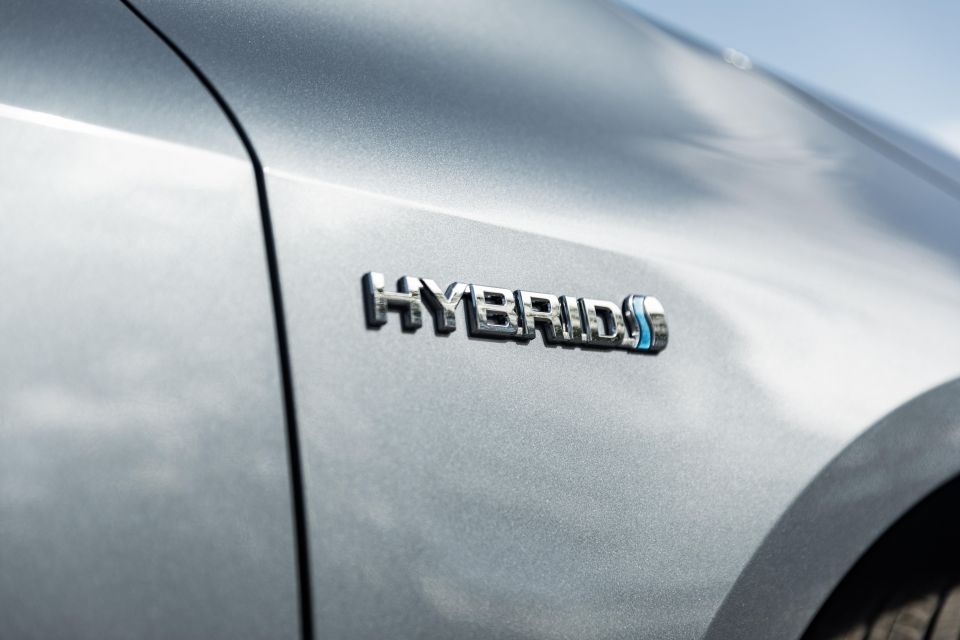

Marketplace Editor
“We’ve played a role in reducing carbon for 21 years, not from three years ago when it became trendy.”
Sean Hanley, vice president of sales and marketing for Toyota Australia, has again sensationally contested the notion the Japanese brand is lagging behind the industry in electrification – in a rare unscripted moment of passion this week.
Speaking with media during the Australian launch of the new hybrid-heavy Corolla Cross, Mr Hanley made his feelings very clear about the path to net zero in Australia, which he believes requires a diverse set of powertrain technologies to “take everyone on the journey”.
“First of all, Toyota is not opposed to battery electric vehicles. Second is that we believe that to get to carbon neutrality, you have to take everyone on the journey – you have to have a solution for the market you’re operating” Mr Hanley claimed.
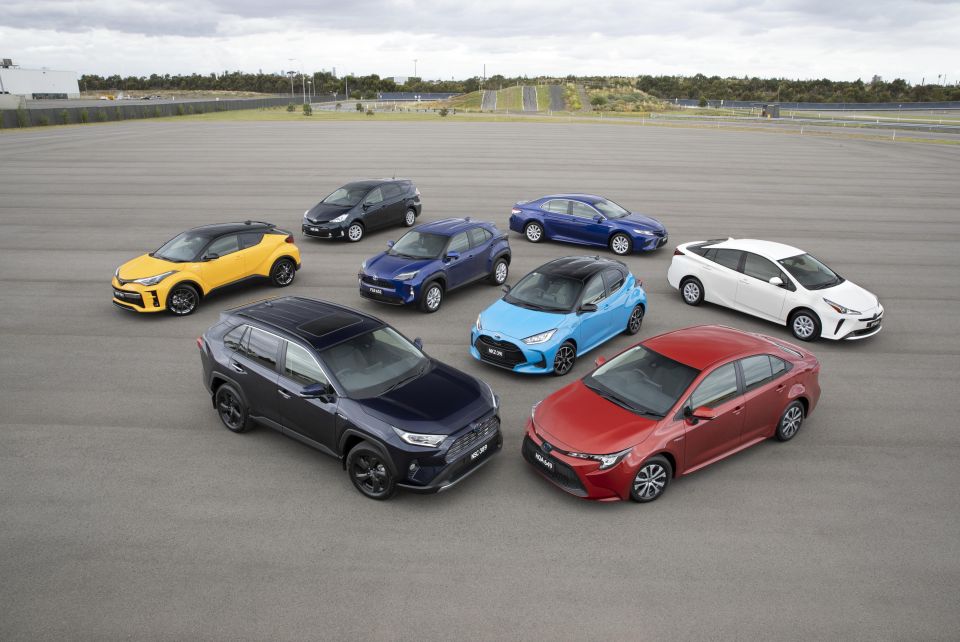
“Now in the market we operate in, we believe right now that the solution is a diversity of products and to empower drivers. So in other words, we’ll have a battery electric vehicle for some customers we’ll have hybrid electric vehicles, fuel-cell electric vehicles and plug-in hybrids.
“By 2030, every Toyota in our range, apart from GR performance cars, will have some form of electrification at debut,” Mr Hanley continued.
Currently the brand’s commercial vehicles, like the top-selling HiLux ute, as well as off-roaders like the LandCruiser 300 Series and Prado don’t offer a hybrid option.
“We believe that you have to have a diverse range of technologies to get there. The point is this: carbon is the enemy here, not the powertrain, right? We are a full supporter of some mandated type of legislation around CO2.
“The one thing everybody agrees with is we have to get to a carbon neutral position. Toyota is not arguing the toss on that, that’s not the debate. Even with the most extreme viewpoint, we agree you’ve got to get to carbon neutral.”
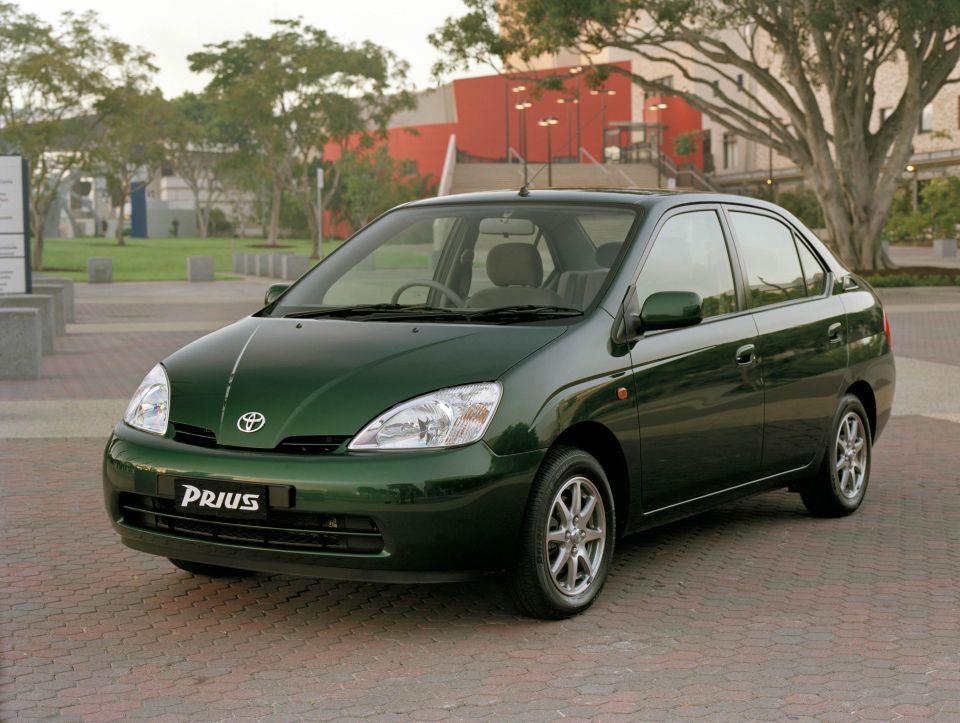
Mr Hanley took a swipe at a perceived blinkered focus on EVs as the key to achieve carbon neutrality in the Australian market, arguing such a strategy runs the risk of leaving a portion of the public behind.
“Some have this belief that you can just go full electric in 10 years in this country and satisfy the punters, satisfy the owners, satisfy what they want to do with cars – [that’s] a very difficult proposition.
“Therefore, diversity of technologies that takes everybody on the journey is a way of getting [to this goal].
“In October 2001, how many car companies were even talking about battery electric cars and how many of them wanted hybrids? I’ll help you answer that – Honda Insight, on and off the market for various reasons. The Prius was the only other car, and since Toyota has been the only brand in the market since that time with a hybrid offering.
“We’ve played a role in reducing carbon for 21 years, not from three years ago when it became trendy.”
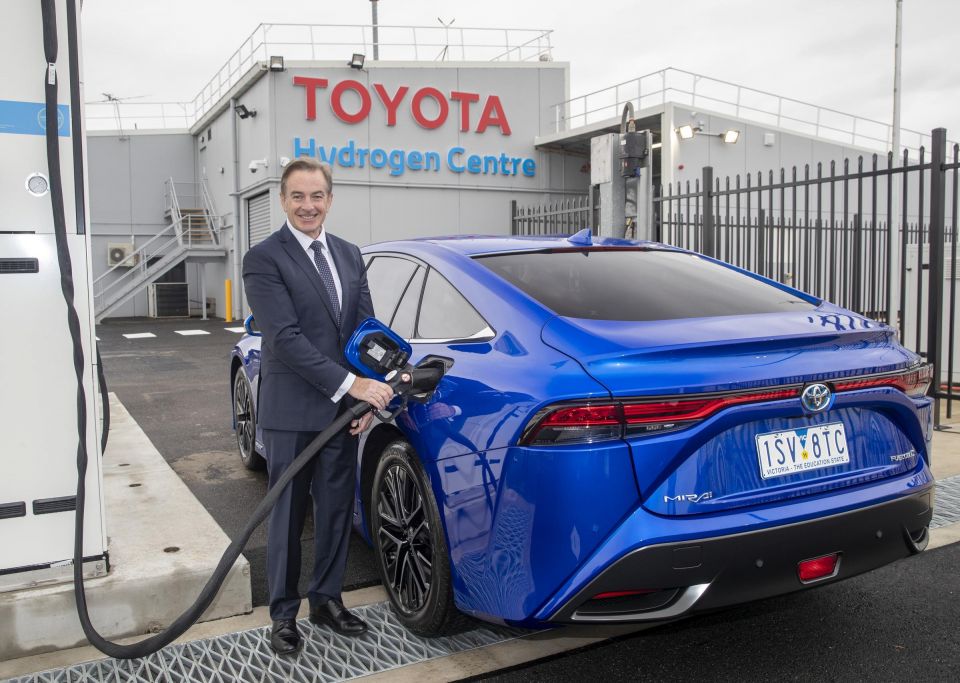
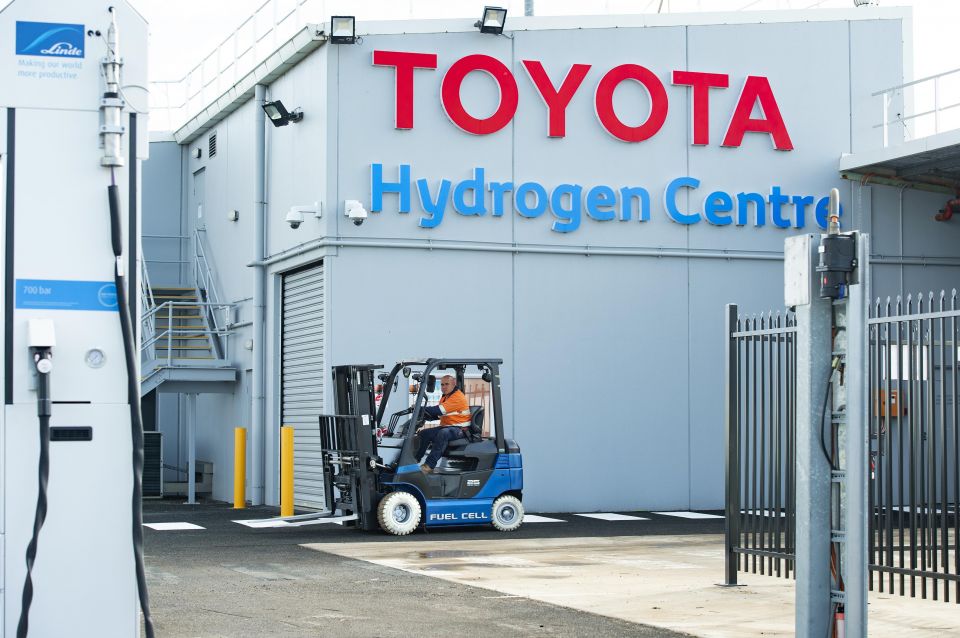
Mr Hanley added his view that the brand’s commitment to carbon emissions reduction and mobility solutions goes well beyond selling electrified vehicles.
“I’ll take you to Altona. I’ll sit at the front and show you: ‘On the right hand side, ladies and gentlemen, that’s a hydrogen refuel centre that we own; in our plant, in our facility. In the Toyota parts centre, there’s a hydrogen forklift running around, and by the way, if you go to that other shed, there’s an autonomous forklift going around.
“Doesn’t stop there – that’s a couple of Mirai fuel-cell vehicles there that we’re selling, that the Hobsons Bay City Council in Melbourne is running – that’s Toyota’s fuel-cell. There’s is one in Western Australia running around as a police car!
“And by the way, last week there was a hydrogen bus, a Toyota hydrogen bus, on display in Sydney. And by the way, we’re the only car company that represents 30 per cent of sales as hybrid right now – that is playing a role in reducing CO2, right now. And we’re launching a battery electric vehicle next year [the bZ4x].
“The point I’m trying to make here is what are you seeing that I’m not seeing? Toyota is not stopping, lagging, preventing. What other car company can stand up in front of you all and give you that lowdown in Australia for their car company – this one can, the leader, that’s who.
“We’re not holding up the world, we want exactly that – we want carbon neutrality. But you’ve got to do it in a way that’s practical and gets us [all] there.”
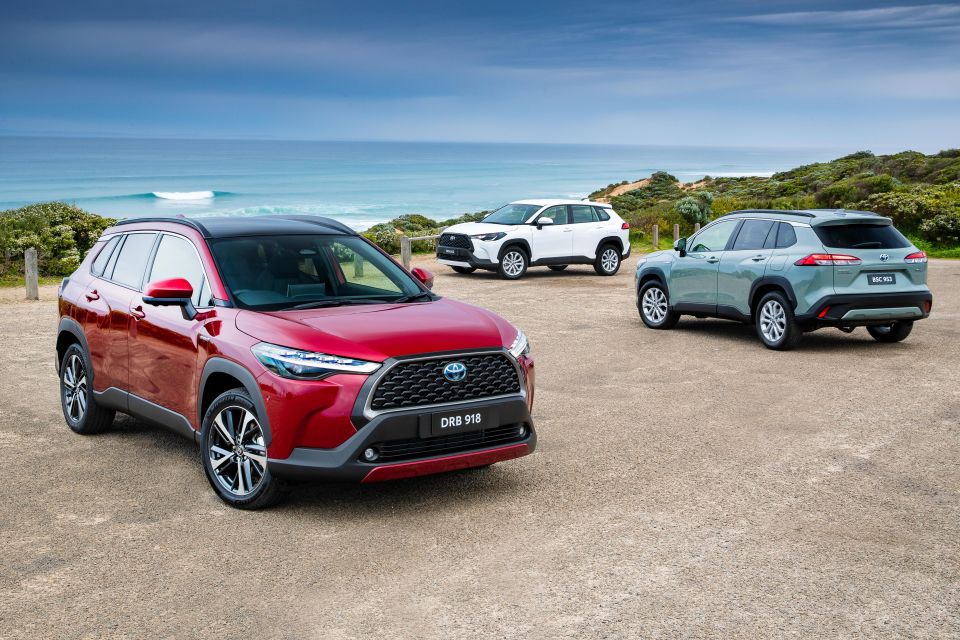
Since the first-generation Prius arrived in Australia over two decades ago, Toyota Australia has delivered over 300,000 hybrid vehicles to the local market. During the Corolla Cross presentation, Mr Hanley equated the emissions reductions achieved by the brand’s hybrid fleet to introducing 90,000 electric vehicles (EVs).
The brand says it has a “considerable order bank” across its line-up, and it’s understood hybrid variants account for the bulk of back orders in key model lines such as the top-selling RAV4 SUV, which currently has wait times in excess of 12 months depending on variant.
Hybrid is also expected to be a key driver of Corolla Cross sales, with 70 per cent of the nameplate’s volume expected to be electrified models.
While Toyota Australia won’t be drawn to quote expected volume figures for its new crossover, Mr Hanley maintained there’s a “healthy production start up for both hybrid and petrol [models]” for the Australian market.
As noted earlier, Mr Hanley confirmed Toyota Australia is expecting to launch the all-electric bZ4x – a RAV4-sized crossover – during the second half of 2023. That means it’s still almost 12 months away from market locally, and by that point will be almost two years behind global markets like Europe and North America.
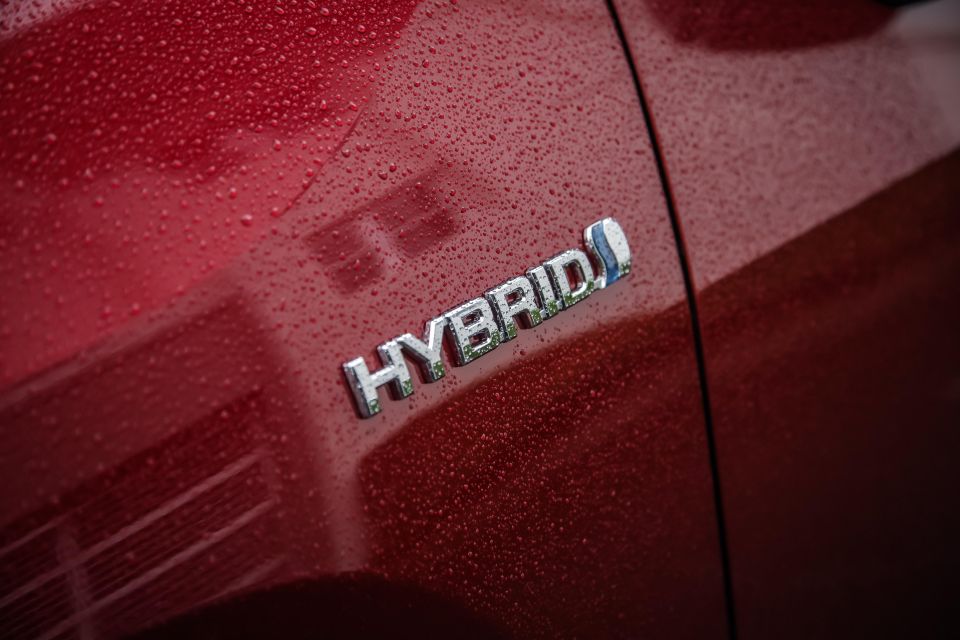
Let us know your thoughts in the comments below!
MORE: Toyota Australia bristles at claims its lack of EVs make it a CO2 pariah MORE: Toyota bZ4x EV delayed, coming to Australia second half of 2023
Take advantage of Australia's BIGGEST new car website to find a great deal on a Toyota.
James is an automotive journalist based in Melbourne, Australia. Before joining CarExpert.com.au in 2020, James has worked at leading auto media outlets including Carsales and CarAdvice, as well as at Pulse agency for Ford Australia's communications team. In 2019 James made Mumbrella's 'Top 20 most prolific web authors in Australia' list after publishing 1,360 articles between March 1, 2018 and February 28, 2019 for CarAdvice. James is also an Ambassador for Drive Against Depression – an Australian charity whose mission is to support mental wellness through the freedom of driving and a shared love of cars.


Andrew Maclean
4 Days Ago
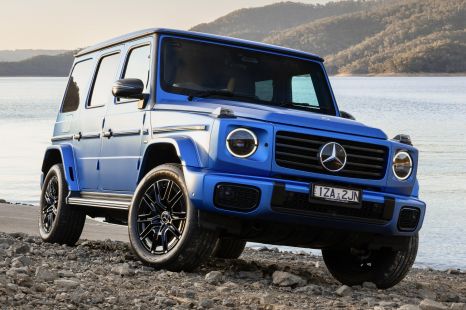

Max Davies
3 Days Ago
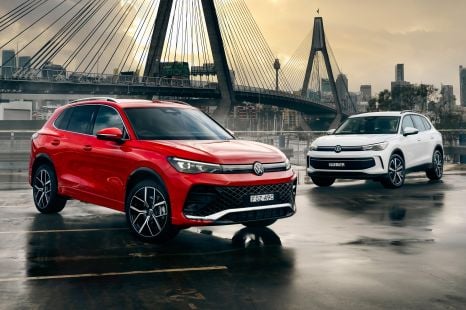

Max Davies
3 Days Ago
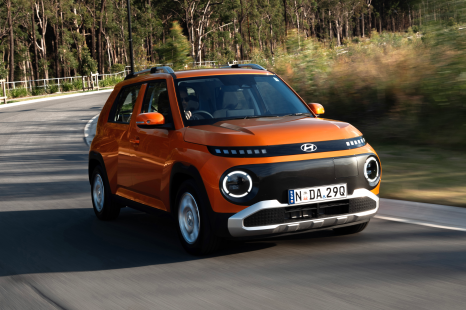

Josh Nevett
3 Days Ago
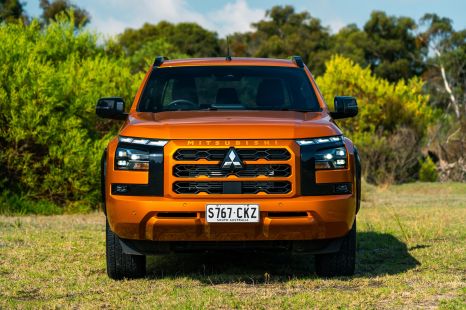

William Stopford
2 Days Ago
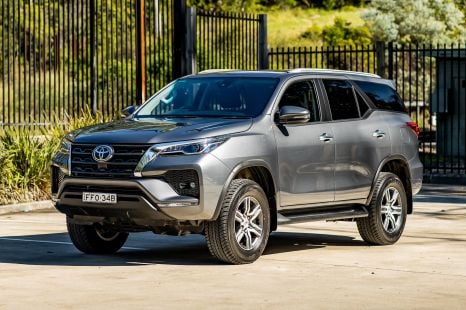

Matt Campbell
2 Days Ago